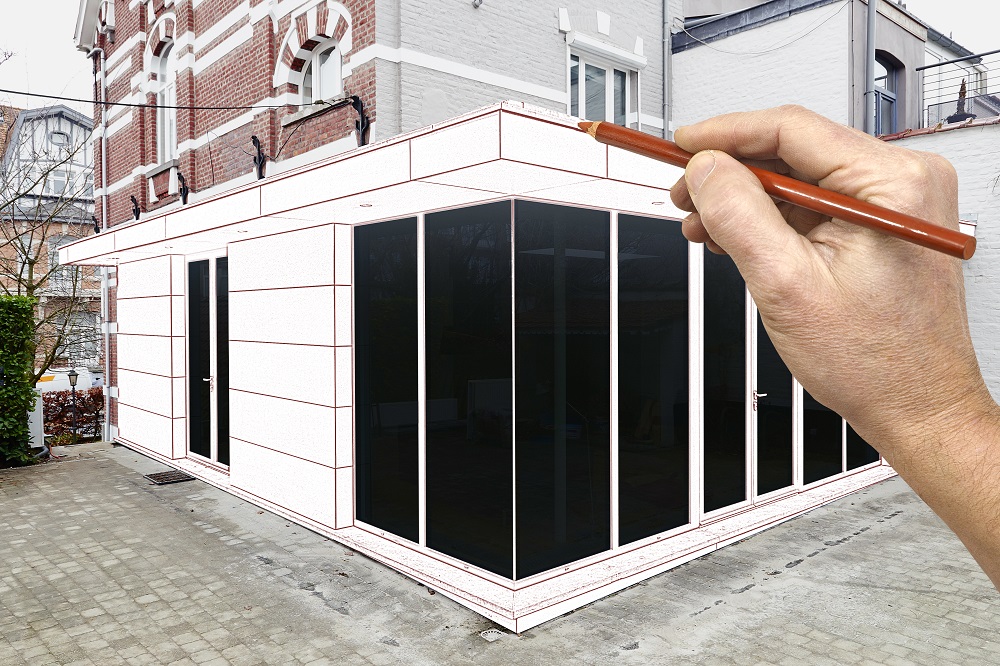Having a home extension will give you plenty of benefits. For one, rather than depositing a huge amount of money on a new home and also paying the necessary services to get your furniture to it, you can use the money towards home extension, which is much more cost-effective if you have sufficient space. Also, having a home extension can increase your home’s value, which is why many homeowners consider the project as a huge investment in the long run.
So, if you’re planning to have a home extension, here are some tips to keep in mind:
1. Have A Designer
Having a reputable and qualified architect at the beginning of your home extension project will allow you ensure that important factors, such as the site’s viability and the location of major pipes, are properly considered. Thus, you won’t get to experience any mishap as soon as the project starts, like hitting a major pipe, which may result in major water leaks.
Furthermore, the right designer will also know how to properly utilize space, which means that they can also provide pointers regarding your vision. If they believe that space won’t allow your dream home extension, they’ll gladly suggest some alternatives. Thus, a Fort Collins architect or one within your locality can help you determine whether your concept is feasible.
2. Set And Stay Within Budget
The good thing about having a designer to help with the planning process is they’re also able to provide an estimate regarding your construction project. This means that you get to financially prepare in advance. Also, they can provide some budget-friendly home extension ideas, too. Remember, to have a successful and worthwhile home extension project, it’s important that you set a budget and stick to it.
As a tip, if the designer already approved of your budget, always have an extra 10% of the total sum. This is to cover unexpected costs, like delays or sudden increases in the cost of materials or wages. This way, your entire renovation project won’t halt due to a financial burden.
3. Have The Necessary Papers Approved
Depending on a lot of factors, such as shape, scale, and size, your home extension project may demand an application for a planning permission. Fortunately, there’s no one-size-fits-all concerning the required paperwork as each local council is different. Hence, depending on your local council, your project’s paperwork requirements may not be a hassle as you think it is.
Additionally, if the architect you’re working with is already experienced, they may be able to go the extra mile and do the legwork for you, depending on your agreement. This way, you won’t be bothered by paperwork, allowing you to focus on the home extension itself.
4. Talk To Your Neighbors
A home extension demands noise every day until it’s finished. Of course, your family would understand the noise involved, but what about your neighbors? Hence, talk to your neighbors first.
By talking to your neighbors, they may understand the purpose of your home extension project. Doing so may help them understand the gist behind the project in the first place, which may result in no one being against your home extension, which will further sway your proposal on the positive side.

5. Check If The Project Affects Other Services
The other services are the supply line of electricity, water, gas, and drainage. Hence, by checking if the project affects these services, it means that you have to consider the space being developed.
If the home extension project affects these services, then you may need to consider other options of getting water or electricity. Perhaps, you can redirect the pipelines first so the water supply won’t be hindered. Also, check if any wiring is going to be affected. This way, you can purchase or borrow a generator in advance.
Lastly, when planning for your home extension, don’t forget to consider the drainage. If the home extension is built over an adopted sewer, you may need a ‘built over sewer’ application. This is to ensure that the drainage won’t get affected throughout the project’s duration. If unsure, ask your architect about this.
6. Research On Different Materials
After the above tips are already considered, this is when the fun yet crucial part of the home extension project begins: researching the materials.
First, the choice of material is crucial since it’ll be responsible for bringing the finished structure to life. Hence, the materials you choose, like eco-friendly ones, will determine if your home extension will stand out from the rest of your home, or it can also become a subtle improvement.
Fortunately, there are already many suppliers and manufacturers around, so you won’t get short of the required materials. However, it’s still important that you conduct your research on their offerings as some may have materials that are cheaper compared to others.
When in doubt, it’s best to consult with your architect. Doing so may also help you stay within your allocated budget.
Final Words
Having a home extension surely provides plenty of benefits, especially if it’s done right. Hence, keep the following tips in mind, like hiring a designer or researching on the materials, to have a smooth and hassle-free home renovation project.






